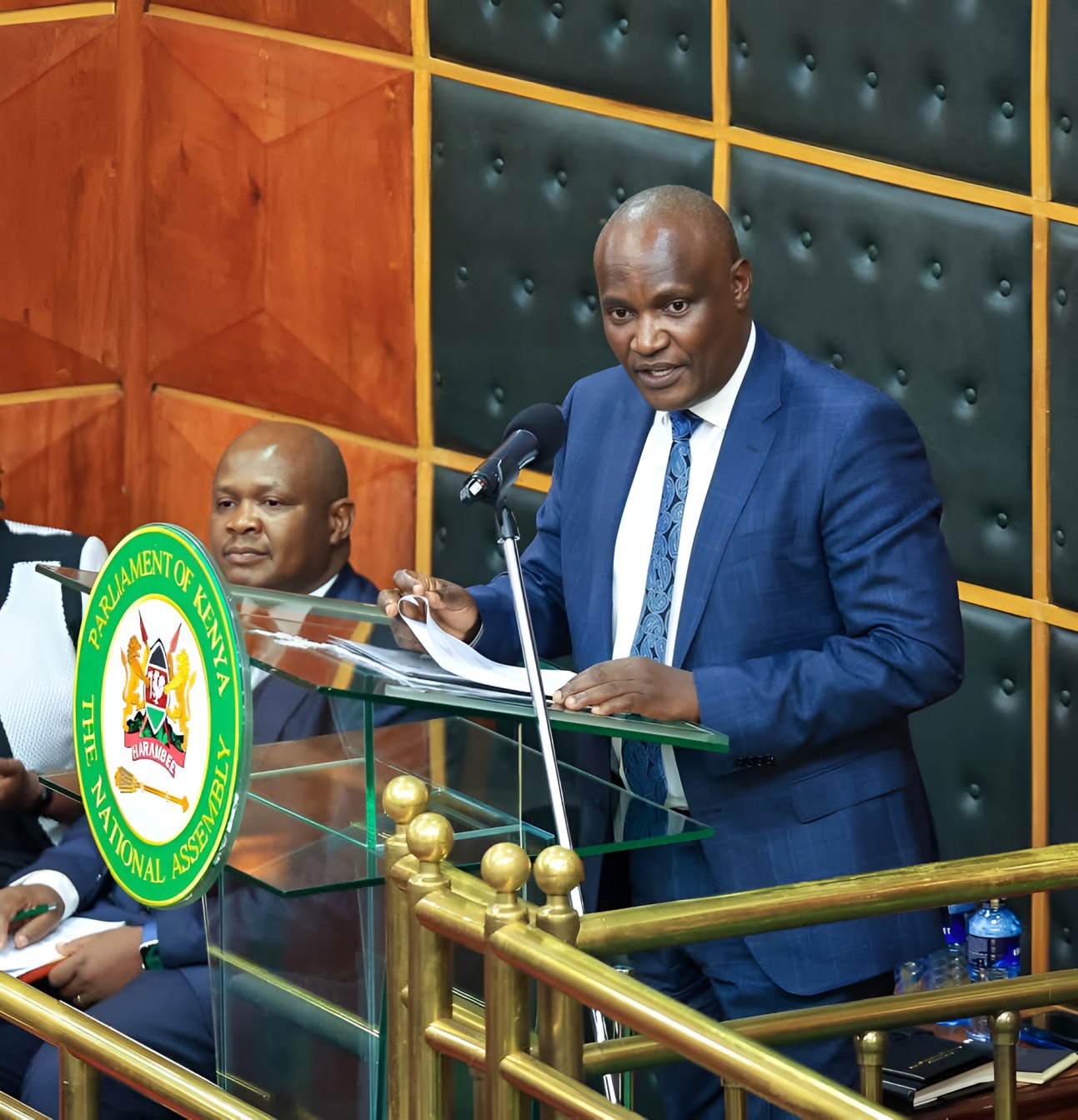Salaried Kenyans will continue to face high Pay As You Earn (PAYE) deductions after Treasury Cabinet Secretary John Mbadi announced that a plan to ease the tax burden was dropped from the 2025 Finance Bill due to low revenue collection by the Kenya Revenue Authority.
Speaking in the Senate on Wednesday, Mbadi said the government had explored ways to reduce PAYE through simulations, but the failure by KRA to meet its revenue targets made the proposal unsustainable.
"When we were preparing the Finance Bill, we also did some simulation on how to reduce PAYE, but what stopped us from implementing it with this Finance Bill alongside the corporate tax was the failure by KRA to meet its revenue targets," he said.
KRA had initially projected to raise Sh2.787 trillion for the financial year ending June 30, 2024.
This was later lowered to Sh2.537 trillion. However, the agency still fell short, collecting Sh2.407 trillion—Sh130 billion below the revised target, achieving 95.5%.
Despite the shortfall, Mbadi noted that KRA had recorded an 11.1 per cent growth compared to the previous year’s revenue of Sh2.166 trillion.
The Treasury attributed the shortfall to challenges such as the weakening of the Kenyan shilling, rising bank lending rates, and ongoing global supply disruptions caused by international conflicts.
Mbadi said the government remains committed to easing the tax burden and expressed hope that ongoing reforms at KRA, especially in automation, would create room for tax relief in future.
"We thought that as we carry out reforms at KRA, we should not be doing many things at the same time. First, let us see what the reforms at KRA are doing for us in terms of automation, then we can move to the next step," he told senators.
The Treasury had also considered lowering corporate tax from 30 to 28%, but the idea was also dropped due to revenue concerns.
Mbadi also responded to Nairobi Senator Edwin Sifuna, who linked the government's shift in tax policy to public pressure, especially from last year’s youth-led protests.
"It is true that we have not made major changes in taxes that will disadvantage the taxpayer in terms of reducing their disposable income. Yes, I know Senator Sifuna is attributing it exclusively to Gen Z, partly true, partly not true. Honourable Senator Sifuna very well knows my stand on taxes, even before I joined the Cabinet. I am one person who does not believe that higher taxes lead to more revenue. That is my stand," he said.
"Maybe we share that idea with Gen Zs, but it cannot exclusively be Gen Z’s idea. I think the government is also sold on the idea that, now that we have reached, we cannot go further to reduce disposable income."
Mbadi further revealed that the government is reviewing the Housing Levy, which currently takes 1.5% of formal workers’ salaries.
The levy is part of the government’s affordable housing programme but has faced sharp criticism from workers.
"On the Housing Levy, I think there is a discussion around seeing how to restructure it because again, it has serious benefits, in my view, as quite a number of projects are coming up," he said.
"But at the same time, individual employees, those with payslips, have complaints which you cannot ignore. So a lot of restructuring is going on, and I am sure more pronouncements will come in due course."
Workers have complained about the compulsory deductions, citing lack of transparency in housing allocation and questioning the policy’s relevance for people who already own homes.
The Federation of Kenya Employers is among the groups pushing for changes to the levy. It has proposed a reduction from 1.5% to 0.5% to reduce the cost burden on workers and boost business competitiveness.
"These steps, if adopted, would ease the cost of living, increase the disposable income of the lowest-paid employees, and make Kenyan businesses more competitive," said FKE CEO Jacqueline Mugo.

